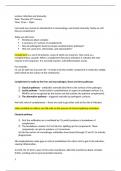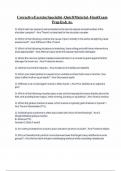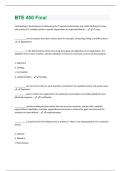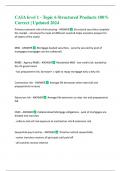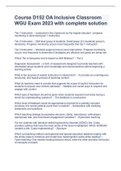Date: Thursday 25th January
Time: 11am – 12pm
Last week we covered an introduction to immunology, and innate immunity. Today we will
discuss complement.
Today we will cover:
Membrane attack complex
A summary of 7 actions of complements
How do pathogenic bacteria escape complementary pathways?
How we cause lysis, chemotaxis, and opsonization?
Complement is a set of 30 proteins, many of which are enzymes. They work as a
complementary cascade. When a complement becomes activated, it activates the next
enzyme in the sequence. It is normally inactive, until inflammation occurs.
For example:
C3 can be split into C3a and C3b – it tends to be the smaller component in molecular weight,
which binds to the surface of the membranes.
Complement is made by the liver and macrophages, there are three pathways:
1) Classical pathway – antibodies normally bind first to the surface of the pathogen.
2) Lectin pathway – lectins bind to carbohydrates or sugars on pathogen surfaces (i.e.
PAMPS can be recognised by the lectins and will activate the pathway complement).
3) The alternative pathway – triggered naturally by pathogenic surfaces.
Non lytic roles of complements – these are used to get other cells to the site of infection.
Video available on slide or use QR code on the process of classical pathway activation.
Classical pathway
1) First the antibodies are crosslinked by C1q which produces a breakdown of
complement.
2) The breakdown creates C1r,C1s,C4b,C2a. Splitting up the components. These
components can join to produce a c3 convertase.
3a) On the surface of macrophage, antibodies have bound through C3 and C1 to activate
phagocytosis.
3b) Anaphylatoxins make gaps in cells of endothelium for other cells to get to the infection,
causing inflammation.
3c) C5b, C8, C9 form a pore in the outer membrane called the membrane attack complex
(MAC), working well on ground positive bacteria.
1

